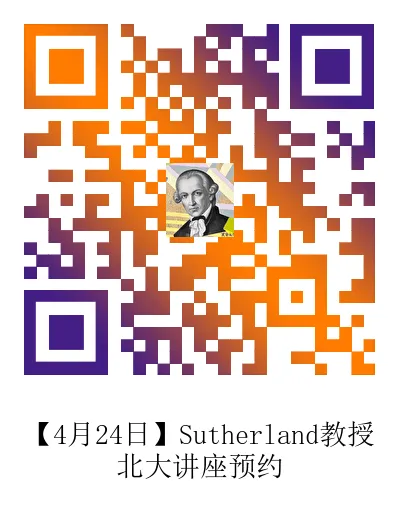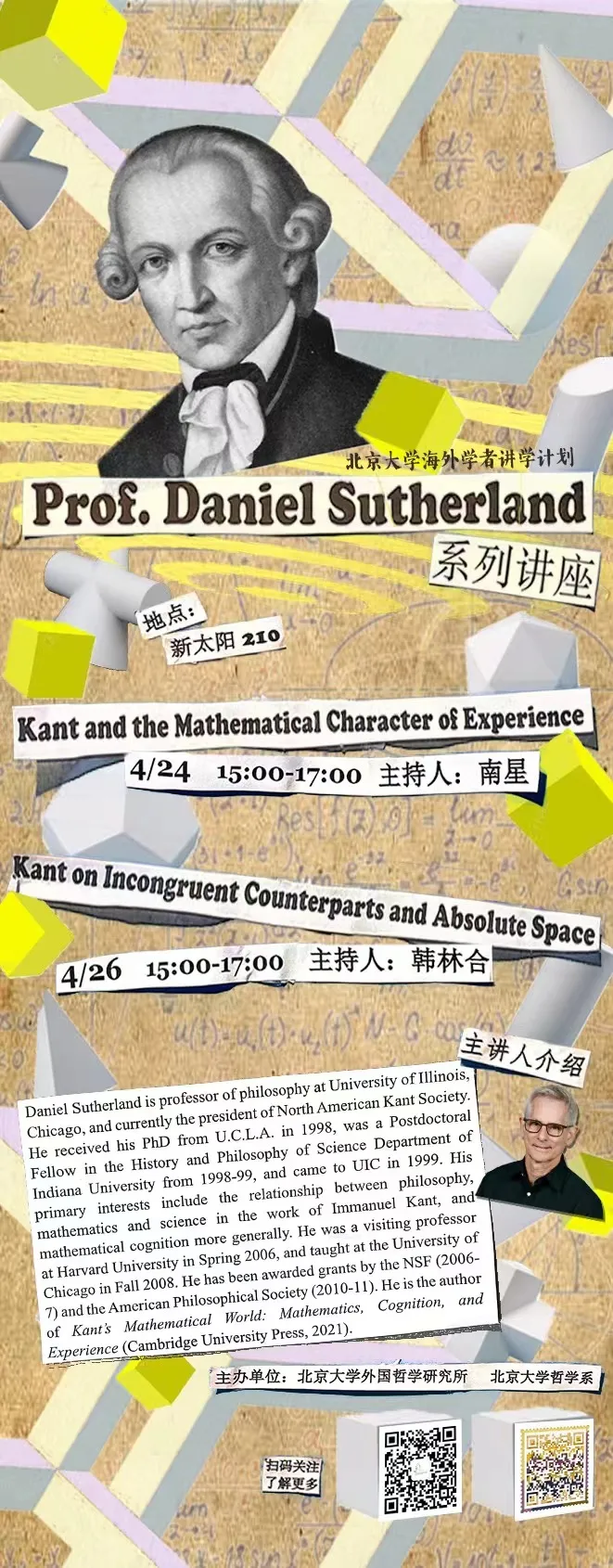04.24–04.26: 北京大学海外学者讲学计划 Prof.Daniel Sutherland 系列讲座
讲座信息
1. Kant and the Mathematical Character of Experience
时间:4月24日(周三)15:00—17:00
主持人:南星
地点:新太阳210
2. Kant on Incongruent Counterparts and Absolute Space
时间:4月26日(周五)15:00—17:00
主持人:韩林合
地点:新太阳210
校外报名渠道
名额有限,先到先得


主讲人:Daniel Sutherland
Daniel Sutherland is professor of philosophy at University of Illinois, Chicago,and currently the president of North American Kant Society. He received his PhD from U.C.L.A. in 1998, was a Postdoctoral Fellow in the History and Philosophy of Science Department of Indiana University from 1998-99, and came to UIC in 1999. His primary interests include the relationship between philosophy, mathematics and science in the work of Immanuel Kant, and mathematical cognition more generally. He was a visiting professor at Harvard University in Spring 2006, and taught at the University of Chicago in Fall 2008. He has been awarded grants by the NSF (2006-7) and the American Philosophical Society (2010-11). He is the author of Kant’s Mathematical World: Mathematics, Cognition, and Experience (Cambridge University Press, 2021).

讲座简介
1. Kant and the Mathematical Character of Experience
Kant thought of mathematics as the science of magnitudes and their measure. His understanding of mathematics is influenced by the ancient Greek mathematical tradition and Euclid in particular. It is quite different from our contemporary understanding of mathematics, after its “arithmetization” at the end of the 19th century. Recovering Kant’s very different way of thinking of mathematics gives us new insight into Kant’s claim that intuition is required for mathematics. It also reveals how deeply mathematics is intertwined with the character of experience. I argue that any adequate interpretation of Kant’s theory of human experience will have to take into account his theory of magnitudes.
2. Kant on Incongruent Counterparts and Absolute Space
Kant famously drew attention to the phenomena of incongruent counterparts, that is, the fact that some objects, like hands, cannot be made to coincide with their mirror image. Kant argued from incongruent counterparts to three different conclusions in his career; in 1768, he used the phenomena of incongruent counterparts to argue for Newtonian substantivalism about space; in 1770 he argued that they showed that our cognition relies on intuition; and in 1783 he argued that they demonstrate transcendental idealism. My paper will focus on Kant’s 1768 argument and attempts to uncover the metaphysical assumptions on which it rests.



